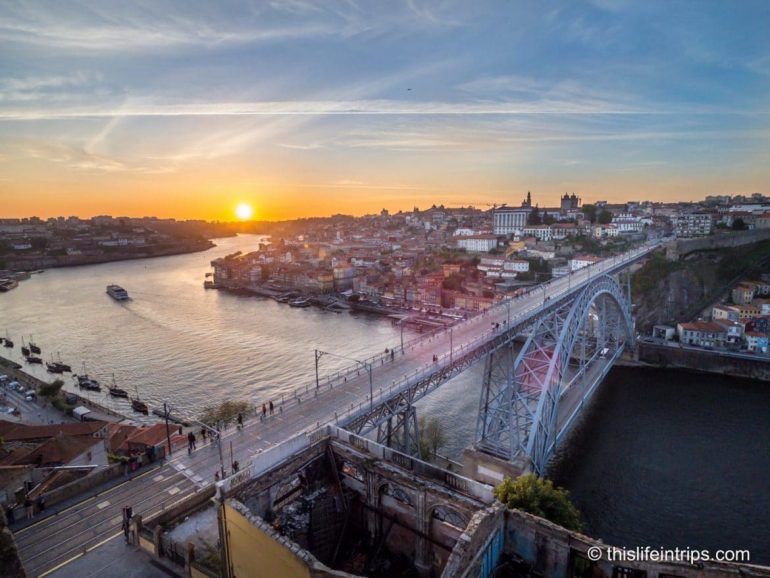For many digital nomads, working remotely while living in an EU country is an appealing option. Two countries that offer specific digital nomad visas are Portugal and Malta. Both provide opportunities to live and work in their beautiful regions, but there are key differences between their visa programs.
Albert Ioffe, Legal and Compliance Officer at Immigrant Invest, will explain what these digital nomad visas are, the requirements for each, and the benefits of Malta and Portugal Nomad Residence Permits.
What is a Digital Nomad Visa?
A digital nomad visa is a type of visa that allows foreign nationals to live and work remotely in a specific country. These visas cater to remote workers, freelancers, and entrepreneurs who earn their income outside the country. The visa is designed for people who do not require a traditional employment contract with a local company. The main requirement is typically that applicants must show they have a stable source of income while working remotely.
Portugal Digital Nomad Visa
Portugal offers a Digital Nomad Visa under the D8 Visa program, which targets non-EU nationals who want to reside in Portugal while working remotely. The D8 Visa is primarily aimed at individuals with passive income, retirees, and remote workers.
Portugal Nomad Visa Requirements
To apply for the Portugal Digital Nomad Visa, applicants must meet several criteria.
- Proof of income – Applicants need to demonstrate they have a stable monthly income of at least €3,480 per month. This could include earnings from remote work.
- Health insurance – A valid health insurance policy is required, either private or via Portugal’s public system.
- Accommodation – Proof of accommodation in Portugal must be provided. This can be a rental contract or property ownership.
- Criminal background check – Applicants must not have a criminal record in their home country or the country of residence for the past five years.
- Tax residency – After obtaining the visa, applicants must declare Portugal as their tax residency if they spend more than 183 days in the country annually.
Malta Digital Nomad Visa
Nomad residence in Malta attracts remote workers to the island. The visa allows non-EU nationals to work remotely while enjoying the benefits of living in a Mediterranean country. The program is open to self-employed individuals, freelancers, and remote employees working for foreign companies.
Proof of income. Applicants must earn at least €3,500 per month from remote work or freelance work with a foreign employer or clients.
Accommodation. Proof of accommodation is required. This can be a rental agreement or a letter from a host.
Health insurance. A valid health insurance policy is mandatory. This can be private or public insurance.
Tax residency. Like Portugal, Malta expects digital nomads to declare the country as their tax residency if they spend more than 183 days in the country each year.
Valid passport and criminal background check. Applicants must have a valid passport and submit a criminal record certificate.
Benefits of Malta Digital Nomad Visa
Malta’s Digital Nomad Visa offers several benefits for remote workers:
- Location. Malta is strategically located in the Mediterranean, offering a mix of beautiful landscapes, warm weather, and rich history.
- English-speaking. English is one of Malta’s official languages, making it easy for digital nomads to communicate and work in the country.
- Tax incentives. Malta has tax benefits for expatriates, such as potential tax reductions under certain conditions for those who apply for the Global Residence Programme or the Highly Qualified Persons Rules.
- EU access. As an EU member state, Malta provides easy access to other European countries, making it ideal for those who want to travel across Europe while living in Malta.
Benefits of Portugal Digital Nomad Visa
Portugal’s D8 Visa also provides a range of benefits:
- Cost of living. Portugal offers a relatively low cost of living compared to other Western European countries, making it an attractive destination for remote workers.
- High quality of life. Portugal has a great climate, beautiful beaches, and vibrant cities, which makes it an enjoyable place to live for digital nomads.
- Access to healthcare. Portugal’s public healthcare system provides affordable access to medical services.
- Ease of residence. Portugal offers a path to permanent residency and citizenship after five years of legal residency, making it an appealing option for those who want to settle in Europe long-term.
Key Differences Between the Two Visas
While both Malta and Portugal offer opportunities for remote workers to live and work in the EU, there are some key differences between their digital nomad visas.
Income requirements in both countries are almost similar. Malta has a slightly higher minimum monthly income requirement of €3,500, while Portugal’s D8 Visa requires an income of €3,480 per month.
Tax residency. Both countries expect digital nomads to declare tax residency if they stay longer than 183 days per year.
Language. While English is widely spoken in Malta, Portugal has a lower level of English proficiency in rural areas. However, major cities like Lisbon and Porto have many English-speaking residents.
Cost of living. Portugal is generally cheaper in terms of rent and day-to-day expenses compared to Malta, especially outside Lisbon.
Digital Nomad Visas Are Easier to Get Than You May Think
Both Malta and Portugal offer unique opportunities for digital nomads, each with their own set of benefits and requirements. Portugal’s D8 Visa might appeal more to those looking for a lower cost of living, while Malta’s Digital Nomad Visa offers the advantage of living in an English-speaking EU country with strong tax incentives for expatriates. Ultimately, the decision between the two countries depends on your income, lifestyle preferences, and long-term goals.
What say you?
Thoughts on Digital Nomad Visas?
Let’s hear it!









What really caught my eye was how the article explains the differences in requirements: for instance, that Portugal’s visa often asks for a steady monthly income (in 2025 around €3,480) from a job or clients outside the country.
And for Malta the article points out that while the rules are somewhat simpler — online application, shorter stay requirement, etc. — you should still get clarity on what “remote work” means in their context.
Nomads Embassy
Another strong point: the lifestyle side is clearly part of the mix. It’s not just paperwork and thresholds — the piece mentions how the climate, culture, work-life rhythm and community networks in both Portugal and Malta add serious value for someone who wants more than just “a desk with a view abroad”. That helps the whole “remote work relocation” idea feel more grounded.
If I were to ask for something more: it would be interesting to see a few short testimonials from people who made the jump to either country—what surprised them, what they managed easily, what they didn’t expect. But even without that, the article gives an excellent overview and makes it feel plausible for someone thinking: “Could I live and work from one of these places?”